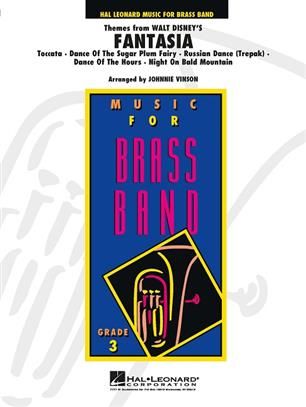We've found 325 matches for your search. Order by
Results
-
 £34.95
£34.95COSSACK WEDDING DANCE - Peter Graham
The finale from Call of the Cossacks (see above).Available MultiMedia Files
Estimated dispatch 3-5 working days
-
 £29.95
£29.95The Rothea Rag - Scott Joplin
A cheerful dance tune, which features all sections of the band, and which ends with a Dixieland free-for-all. Not to be taken seriously.
Estimated dispatch 5-14 working days
-
-
-
 £69.99
£69.99 -
 £97.60
£97.60Lord Of The Dance - Ronan Hardiman
Estimated dispatch 5-14 working days
-
 £67.70
£67.70Rhythm of the Dance - Ivo Kouwenhoven
Estimated dispatch 5-14 working days
-
 £33.00
£33.00 -
£33.00
Lord of the Dance - Traditional - Broadbent, D
In Stock: Estimated dispatch 1-3 working days
-
 £54.99
£54.99Themes from Fantasia (Brass Band - Score and Parts)
A very playable medley from the classic movie 'Fantasia' containing 'Toccata', 'Dance Of The Sugar Plum Fairy', 'Russian Dance (Trepak), 'Dance Of The Hours' and 'Night On Bald Mountain'. Ideal for young bands and very entertaining for your audience!
Estimated dispatch 7-14 working days
